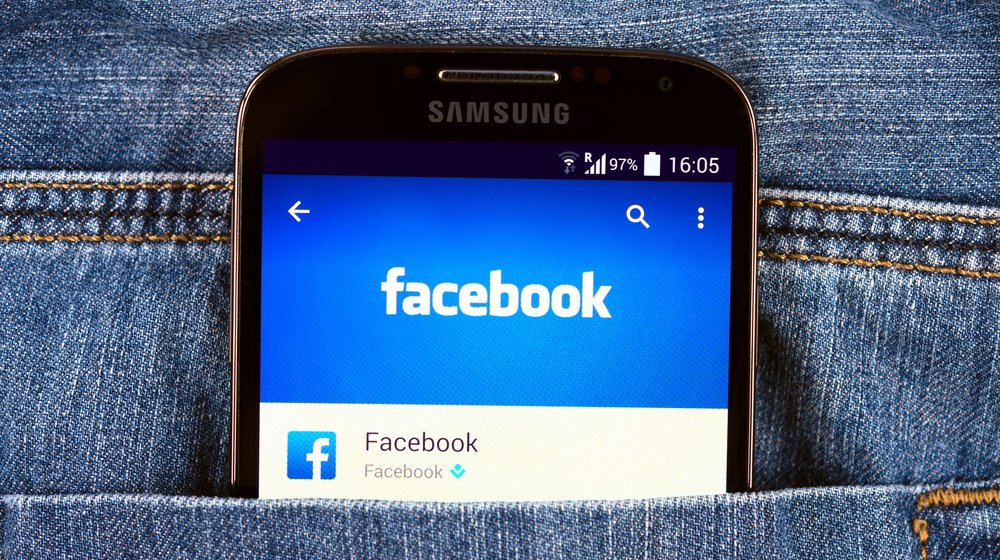Facebook defends data-sharing deals with more than 60 device makers - including Apple and Blackberry
Facebook downplays New York Times report suggesting data-sharing deals breached consent decree with the FTC


Sign up today and you will receive a free copy of our Future Focus 2025 report - the leading guidance on AI, cybersecurity and other IT challenges as per 700+ senior executives
You are now subscribed
Your newsletter sign-up was successful
Facebook has hit back at a New York Times report suggesting the company gave device makers "deep access to data". saying it "disagrees with the issues they've raised about these APIs".
Data-sharing partnerships struck with at least 60 device makers, including Apple, Samsung, and Blackberry, stretch back 10 years to before Facebook apps were widely available on smartphones, according to company officials who spoke to the New York Times.
These deals allowed the social networking giant to grow its reach and let device makers offer features such as messaging, and 'like' buttons, but raise concerns about privacy protections, and compliance with a consent decree agreed with the Federal Trade Commission (FTC) in 2011 which prevented Facebook from overriding users' privacy settings without consent.
"Facebook allowed the device companies access to the data of users' friends without their explicit consent, even after declaring that it would no longer share such information with outsiders. Some device makers could retrieve personal information even from users' friends who believed they had barred any sharing," wrote authors Gabriel JX Dance, Nicholas Confessore and Michael LaForgia.
But "all these partnerships were built on a common interest", according to Ime Archibong, Facebook's vice president of product partnerships, in a post published on Facebook's newsroom, and the company "controlled them tightly from the get-go".
Because smartphones were less powerful at the time, with few able to run standalone apps, the company built private application programming interfaces (APIs) for device makers to recreate the Facebook experience.
"These partners signed agreements that prevented people's Facebook information from being used for any other purpose than to recreate Facebook-like experiences," Archibong wrote.
Sign up today and you will receive a free copy of our Future Focus 2025 report - the leading guidance on AI, cybersecurity and other IT challenges as per 700+ senior executives
"Partners could not integrate the user's Facebook features with their devices without the user's permission. And our partnership and engineering teams approved the Facebook experiences these companies built.
"Contrary to claims by the New York Times, friends' information, like photos, was only accessible on devices when people made a decision to share their information with those friends. We are not aware of any abuse by these companies."
An example was used to highlight the scale of data-sharing these partnerships enabled, with co-author LaForgia using the Hub app on a Blackberry Z10 to log into Facebook.
The New York Times demonstrated that after logging into Facebook, the Hub app was able to retrieve data on 556 of LaForgia's friends, as well as access information on 294,258 of his friends of friends.
Facebook has said it has already ended 22 of these partnerships, and said it would wind down access to APIs in April as fewer users are reliant on such Facebook experiences, although the New York Times claims most of the partnerships remain in effect.
Concerns over data sharing practices across the social network have been magnified in light of the burgeoning Cambridge Analytica scandal, in which the now-defunct data-powered political consultancy firm came under fire for the way in which it gained access to Facebook users' data, and allegedly misused this information in political campaigns.
Facebook itself is subject to a number of probes set up in the wake of the Cambridge Analytica; for instance one of 30 companies falling within the scope of an Information Commissioner's Office (ICO) investigation into the misuse of data in elections.

Keumars Afifi-Sabet is a writer and editor that specialises in public sector, cyber security, and cloud computing. He first joined ITPro as a staff writer in April 2018 and eventually became its Features Editor. Although a regular contributor to other tech sites in the past, these days you will find Keumars on LiveScience, where he runs its Technology section.
-
 Anthropic reveals Claude Opus 4.6, its new enterprise-focused model
Anthropic reveals Claude Opus 4.6, its new enterprise-focused modelNews The AI developer highlighted financial and legal tasks, as well as agent tool use, as particular strengths for the new model
-
 AI-generated code is fast becoming the biggest enterprise security risk
AI-generated code is fast becoming the biggest enterprise security riskNews Security teams are scrambling to catch AI-generated flaws that appear correct before disaster strikes
-
 AI is “forcing a fundamental shift” in data privacy and governance
AI is “forcing a fundamental shift” in data privacy and governanceNews Organizations are working to define and establish the governance structures they need to manage AI responsibly at scale – and budgets are going up
-
 Fears over “AI model collapse” are fueling a shift to zero trust data governance strategies
Fears over “AI model collapse” are fueling a shift to zero trust data governance strategiesNews Gartner warns of "model collapse" as AI-generated data proliferates – and says organizations need to beware
-
 LastPass hit with ICO fine after 2022 data breach exposed 1.6 million users – here’s how the incident unfolded
LastPass hit with ICO fine after 2022 data breach exposed 1.6 million users – here’s how the incident unfoldedNews The impact of the LastPass breach was felt by customers as late as December 2024
-
 Cyber attacks have rocked UK retailers – here's how you can stay safe
Cyber attacks have rocked UK retailers – here's how you can stay safeNews Following recent attacks on retailers, the NCSC urges other firms to make sure they don't fall victim too
-
 ICO admits it's too slow dealing with complaints – so it's eying up automation to cut staff workloads
ICO admits it's too slow dealing with complaints – so it's eying up automation to cut staff workloadsNews The UK's data protection authority has apologized for being slow to respond to data protection complaints, saying it's been overwhelmed by increased workloads.
-
 Tech leaders worry AI innovation is outpacing governance
Tech leaders worry AI innovation is outpacing governanceNews Business execs have warned the current rate of AI innovation is outpacing governance practices.
-
 Top data security trends
Top data security trendsWhitepaper Must-have tools for your data security toolkit
-
 “Limited resources” scupper ICO probe into EasyJet breach
“Limited resources” scupper ICO probe into EasyJet breachNews The decision to drop the probe has been described as “deeply concerning” by security practitioners